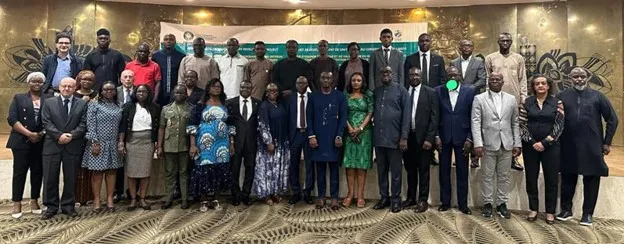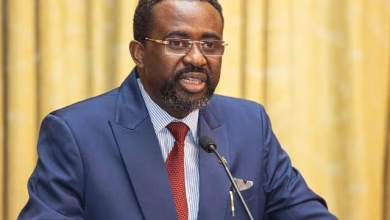The Economic Community of West African States (ECOWAS) recently concluded a review of a draft report on trade and transport facilitation for the planned Abidjan-Lagos Corridor Highway.
This three-day workshop brought together government officials, industry experts, and development partners from across the region.
Goals: Smooth Movement of People and Goods
The objective is to establish a framework ensuring the free flow of goods, services, and people along the new highway. This framework aims to eliminate unnecessary obstacles and delays currently experienced on the Abidjan-Lagos corridor.
Consultant Recommendations and Stakeholder Input
Consultants presented their interim report, outlining current challenges and proposing solutions to streamline trade and transport. Participants from ECOWAS member states (Nigeria, Benin, Togo, Ghana, and Côte d’Ivoire) actively participated, providing valuable insights and suggesting best practices.
Focus on Free Movement
The importance of the project for regional integration was emphasized by ECOWAS representatives. The Director of Free Movement of Persons and Migration highlighted initiatives like the “Interstate Passenger” scheme and the proposed “ECOVISA” to facilitate movement across borders.
ECOWAS Brown Card Scheme for Enhanced Protection
The Executive Director of ECOWAS Brown Card stressed the importance of a harmonized insurance scheme to protect people and property on the highway. This existing scheme provides coverage for accidents across member states.
Next Steps: Refinement, Validation, and Implementation
The consultants will consider the feedback received and revise their report. Following further review and validation by member countries, the framework will be implemented.
Concurrent Highway Design Progress
While the trade facilitation framework is being established, the ECOWAS Transport Directorate is finalizing the detailed design of the highway itself. The goal is to have both the highway design and the trade facilitation framework completed in tandem to ensure a smooth transition to construction.
Collaboration for a Regional Success Story
The project reflects strong regional cooperation. The African Development Bank (AfDB), the European Union, and ECOWAS itself are co-financing the technical studies. Additionally, each corridor country contributed US$1.4 million towards project preparation. In the long term, a dedicated Abidjan-Lagos Corridor Management Authority (ALCOMA) is expected to take over project management.
The Abidjan-Lagos Corridor Highway Development Project is a significant undertaking with the potential to transform trade and economic activity in West Africa. By fostering collaboration and addressing potential challenges beforehand, ECOWAS is laying the groundwork for a successful and impactful project.


